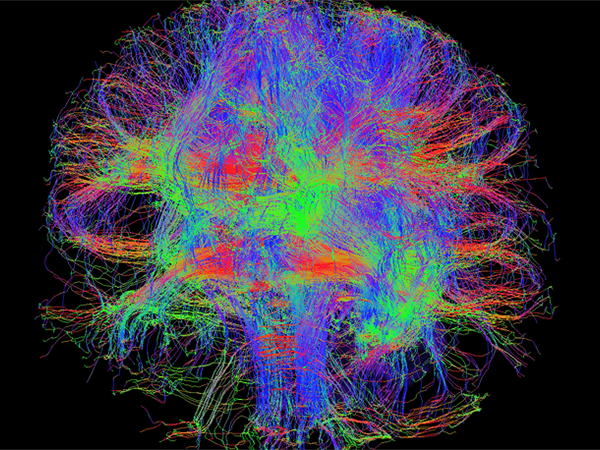Progression to Cognitive Impairment in MS Patients may be Mediated by Ventral Attention Network
 Findings from a study published in Neurology from Vrije University in Amsterdam suggest the switch from intact cognition to impairment in patients with multiple sclerosis (MS) may be triggered by the disruption of ventral attention network (VAN) functioning. The researchers sought to identify the brain networks tied to cognitive dysfunction to determine how to delay disease progression in MS patients.
Findings from a study published in Neurology from Vrije University in Amsterdam suggest the switch from intact cognition to impairment in patients with multiple sclerosis (MS) may be triggered by the disruption of ventral attention network (VAN) functioning. The researchers sought to identify the brain networks tied to cognitive dysfunction to determine how to delay disease progression in MS patients.
Study data included neuropsychologic and neuroimaging data from 227 MS patients and 59 healthy controls at baseline and at five years. Patients were categorized on the basis of cognitive performance, and a functional network analysis was performed to determine significant changes which may have led to cognitive impairment. Both groups had a mean age of 47.6 ± 11.0 and 46.0 ± 9.9 years and 67.4% and 52.5% were women, respectively. Patients in the MS cohort had an average disease duration of 14.8 ± 8.5 years, and at baseline 123 were cognitively preserved (CP), 32 were mildly impaired, and 72 were cognitively impaired (CI). The cognitively affected patient groups had increased disease durations (P =.021), disability scores (P <.001), and lesion volume (P <.001), as well as decreased brain volume (P <.001).
At follow-up, 26.0% of patients were found to have deteriorated cognitively, categorized as CP (n=104), mildly impaired (n=51), and CI (n=72). In comparing CP with CI data, signi cant differences were observed in the VAN (P =.013) and default-mode network (DMN; P =.05), with signi cant group-by-time interactions in the VAN (F[3,277], 3.60; P =.014) and cerebellum (F[3,277], 2.81; P =.040).
At baseline, the groups exhibited significantly different connectivity strength between the VAN and DMN (P =.004), frontoparietal network (FPN; P =.013), and dorsal attention network (DAN; P =.032). At follow-up, the connection with DMN and FPN was increased in patients with CI but not among those with CP or the controls (all P £.034). The connection with the DAN was increased in patients with CI compared with the controls (P =.026), but not as compared with other patient groups.
A significant correlation was observed between VAN importance and average cognition at baseline (r, 0.18; P =.006), indicating that as cognition increases over time, so does the importance of VAN. At follow-up, patients with high delta VAN (n=29) exhibited poor spatial recall test performance (P =.042) and deteriorated average cognition (P =.005). These patterns were not observed among the controls.
The study was limited by its inclusion of patients with a well-established history of MS. It remains unclear whether network alterations early in the progression of MS contributed to the study findings.
These data indicated that the progression to cognitive impairment among patients with MS may be mediated through the VAN, with progression to the DMN at later stages.
“This stresses the importance of future longitudinal studies in MS, in order to confirm our hypothesis on the role of the VAN in early stages of clinical progression, as well as the DMN and other attention/executive networks in later stages,” the researchers concluded.
Related Articles
Citation
. Progression to Cognitive Impairment in MS Patients may be Mediated by Ventral Attention Network. Appl Radiol.
September 21, 2021